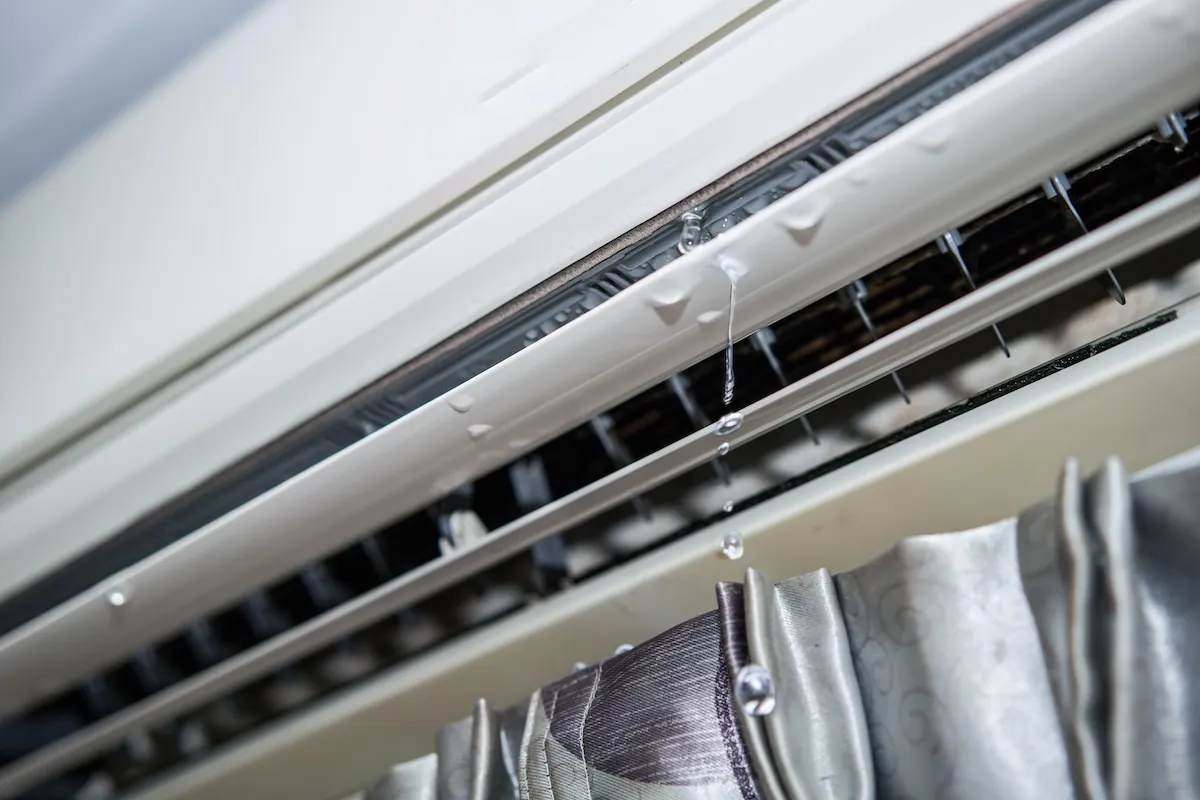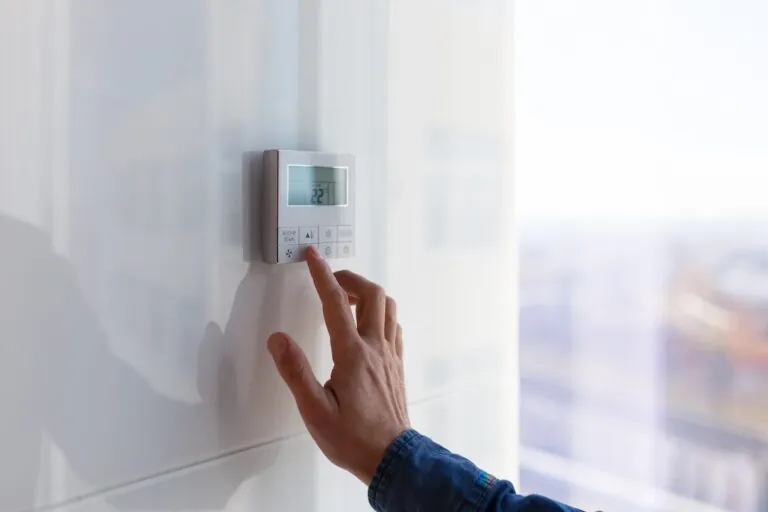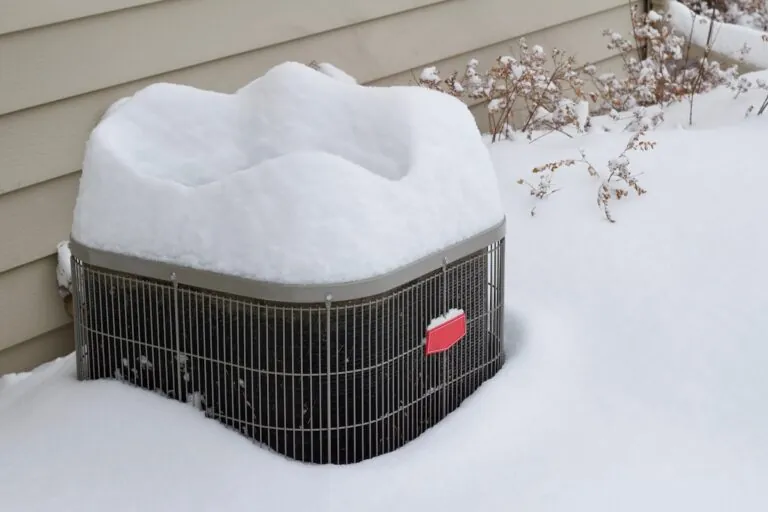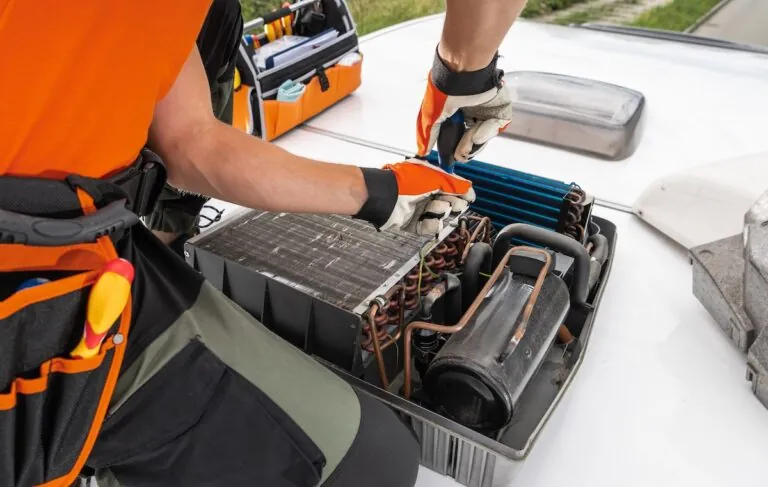One of the most frustrating scenarios for homeowners during the summer is discovering their air conditioner leaking water. Your A.C. unit is supposed to keep your home comfortable, not create a puddle on your floor! If you’re asking yourself, “Why is my AC leaking water?” don’t worry—you’re not alone.
Water leakage is a common issue with air conditioners, but there’s no one-size-fits-all answer. Several factors can lead to a leaking A.C. unit. Here are a few of the most common reasons for this problem:
- A clogged drain line, which obstructs proper drainage
- A dirty air filter restricting proper airflow
- A damaged or rusted drain pan that can no longer hold condensation
If you’re ready to find out what could be causing your A.C. to leak and what to do about it, keep reading! We’ll walk you through the seven most common reasons your air conditioner might be sweating a little too much.
1. Clogged Drain Line
One of the most frequent causes of a leaking A.C. unit is a clogged drain line. Your air conditioner removes moisture from the air as part of the cooling process, which collects as water and drains through the condensate line. However, over time, debris such as dirt, mold, or algae can build up, blocking the line entirely.
Signs of a Clogged Drain Line:
- Water pooling around your indoor unit.
- A musty or moldy smell near the A.C. system.
- Reduced cooling efficiency.
How to Fix It:
You can try using a wet/dry vacuum to clear the blockage or flush the line with a solution of water and vinegar to dislodge debris. However, if the clog is significant, it’s best to call a professional HVAC technician to avoid causing further damage.
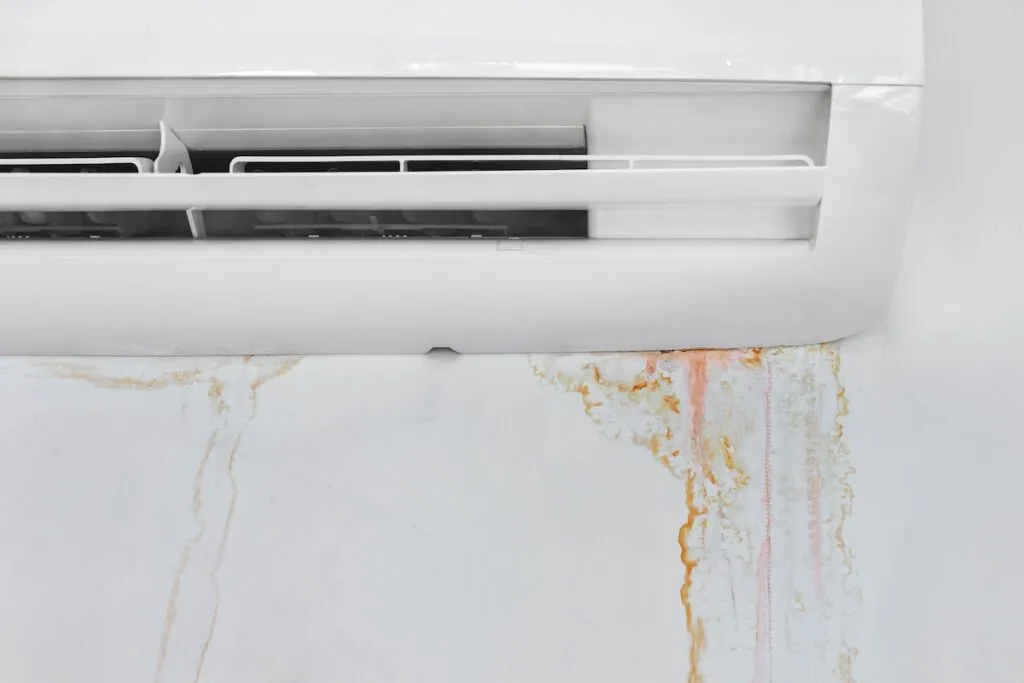
2. Dirty Air Filter
A dirty air filter might seem harmless, but it can lead to significant issues, including a leaking air conditioner. When your air filter isn’t regularly cleaned or replaced, it restricts airflow. This restriction causes the evaporator coil to freeze due to a lack of warm air circulating through the system. Once the frozen coil melts, it can produce excess water that overwhelms the drain pan.
Signs Your Air Filter Might Be the Issue:
- Reduced airflow from your vents.
- Ice forming on your A.C. system.
- Your system frequently cycles on and off.
How to Prevent It:
Replacing your air filter every 1-3 months, depending on usage and the type of filter, can prevent this issue. Regular maintenance ensures that your system operates efficiently and doesn’t produce excess condensation.
3. Rusted or Cracked Drain Pan
Your A.C.’s drain pan is responsible for catching the condensation created during the cooling process. Over time, the drain pan can rust, crack, or corrode, especially in older units. Once it’s damaged, the pan can no longer hold water, leading to leaks around the base of the unit.
How to Identify a Faulty Drain Pan:
- Water leaking beneath your unit, despite a clear drain line.
- Visible rust or holes in the pan when inspected.
What to Do:
If your drain pan is rusty or damaged, it will need to be replaced. It’s a relatively straightforward fix for an HVAC technician and can save you from other potential water damage around the unit.
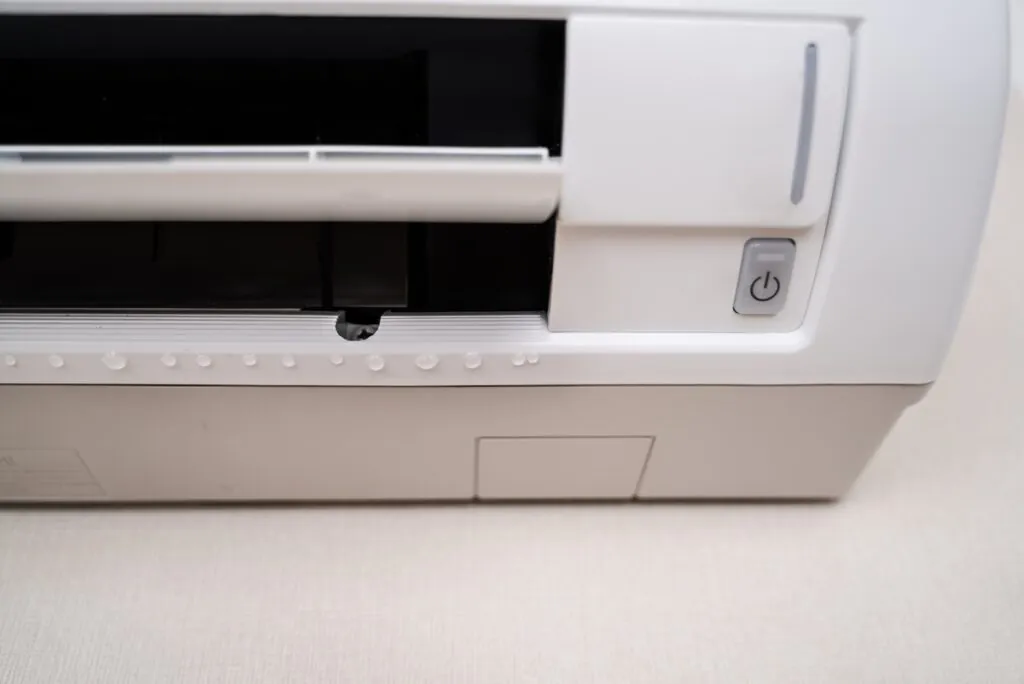
4. Low Refrigerant Levels
Low refrigerant levels can also cause your air conditioner to leak water. When refrigerant levels drop, the pressure in your system changes, causing the evaporator coil to become too cold and freeze. Just like a dirty air filter, the frozen coil will eventually thaw, creating excess water that can overflow the drain pan.
Signs of Low Refrigerant Levels:
- Your A.C. isn’t cooling effectively.
- Hissing or bubbling sounds near the refrigerant line.
- Ice forming on the refrigerant lines or evaporator coils.
The Solution:
Low refrigerant levels are a serious issue that require professional attention. A licensed HVAC technician will not only top off your refrigerant but also identify and repair any leaks that caused the drop.
5. Improper Installation
If your air conditioner is new but leaking water, it might not have been installed correctly. Improper installation, such as a poorly connected drain line or incorrect leveling of the system, can disrupt the flow of condensation and lead to leaks.
How to Spot Installation Issues:
- 💧 Water leaks occur immediately after installation.
- ❌ The unit appears uneven or tilted.
- ❄️ Your A.C. struggles to cool your home effectively.
How to Resolve It:
If the issue stems from installation errors, contact the professional or company that installed your unit to address the problem. If that’s not an option, a trusted HVAC technician can re-install or fix the unit for you.
6. Excessive Humidity
If you live in a particularly humid environment, your air conditioner may struggle to handle the high levels of moisture in the air. When the humidity is excessive, the A.C. system produces more condensation than usual, and your drain pan or line might not be able to keep up.
How to Manage High Humidity:
- Use a dehumidifier to reduce the moisture in the air.
- Schedule regular maintenance to ensure your system can handle increased condensation.
- Upgrade to a more powerful A.C. unit if your current one isn’t suited for your environment.
7. Frozen Evaporator Coil
If your evaporator coil freezes, it could lead to water leakage. The frozen coil isn’t just caused by a dirty air filter—other factors can play a role. Here’s what might be causing your evaporator coil to freeze and lead to your leaking A.C.:
- Blocked Airflow: Restricted airflow due to dirty vents or filters can prevent warm air from reaching the evaporator coil, leading to freezing.
- Low Refrigerant Levels: Insufficient refrigerant in your system reduces pressure, which can cause the coil to cool excessively.
- Faulty Blower Fan: A malfunctioning blower fan can hinder airflow, causing moisture to freeze on the coil.
Preventing Frozen Coils:
- Ensure regular cleaning and maintenance of your system.
- Replace filters and unblock air ducts.
- Have a professional inspect refrigerant levels and test your blower fan.

The Bottom Line
A leaking air conditioner is not a problem to ignore—it’s a warning sign that something isn’t working as it should. While some issues, like a clogged drain line, are relatively easy to fix, others, such as refrigerant problems or improper installation, require the expertise of a professional HVAC technician.
From diagnosing tricky leaks to preventative maintenance and everything in between, our team is here to provide stress-free solutions tailored to your home. Contact Genz-Ryan today to schedule an appointment and keep your home cool, comfortable, and leak-free for years to come!



